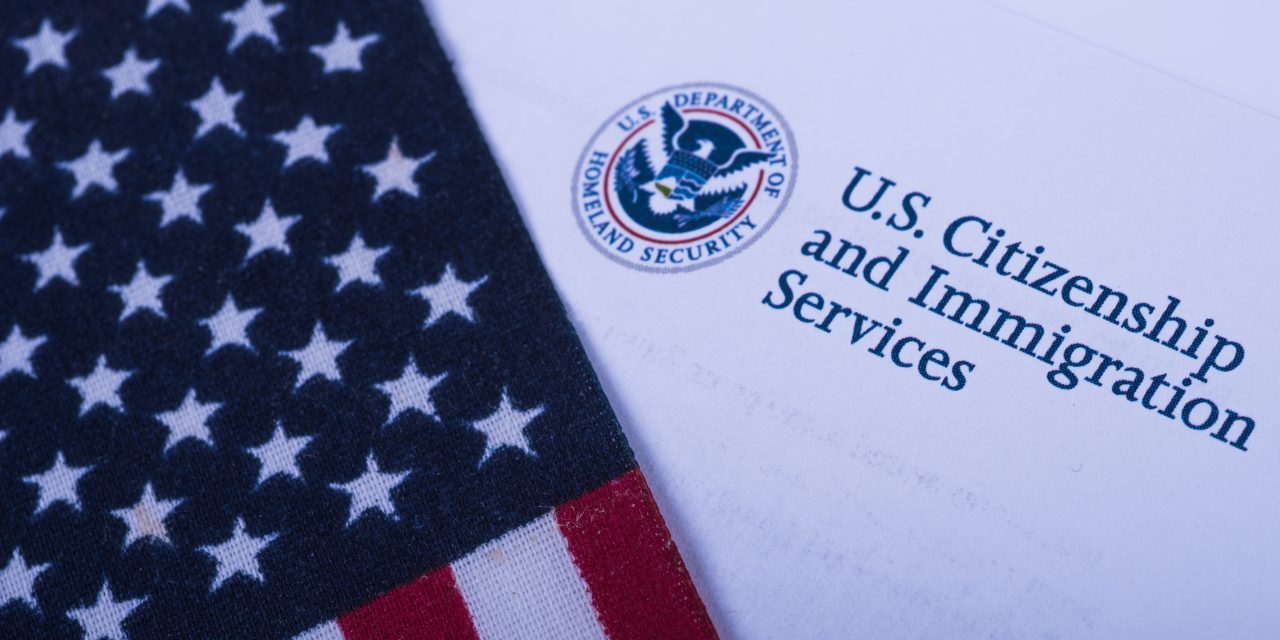From the displacement following the Russian invasion of Ukraine to migrant bussing across the United States, the immigration field has faced unique challenges this year while continuing to manage the ongoing COVID pandemic, backlog for legal immigration and asylum cases, and more.
Last week, U.S. Citizenship and Immigration Services (USCIS) released its Fiscal Year 2022 Progress Report. The report highlighted data regarding the agency’s approach to reducing backlogs, addressing labor shortages, meeting a growing humanitarian need, and maneuvering fiscal challenges. Within the report, the agency continuously credits congressional support for backlog reduction and other positive changes to the processing of various immigration applications. While USCIS receives income through its application fees—which continue to be increased—it has also received large increases in congressional funding, though this has had limited impact on the problems persisting in the agency.
Highlights of the Report
According to the report, nearly one million immigrants became U.S. citizens in 2022, which represented a 62% reduction in the net backlog of naturalization applications and the third highest number of naturalized citizens in U.S. history. USCIS credits this accomplishment to the commitment of its workforce and appropriations from Congress. However, reduction in the net backlog is only a partial solution, as there continues to be extensive delays in the processing of new applications, along with the remaining backlog, which continues to grow.
Improvements were made to the issuance of available employment-based visas, a welcome accomplishment after years of reduced numbers. The agency issued all available employment-based immigrant visas for 2022. This represented double the pre-pandemic number.
According to the agency, a reduction in capacity led to a growing number of noncitizens with valid Employment Authorization Documents (EADs) losing work authorization while waiting for their EAD renewal applications to be processed. USCIS did implement temporary guidance which extended the time a current work permit is valid for 400,000 noncitizens. This prevented the expiration of some permits while renewal applications were still pending, though it is still out of compliance with court orders in the Council’s litigation regarding the requirement to adjudicate certain new EAD applications within 30 days.
New rulemaking allowed USCIS to make available the highest number of supplemental H-2B nonagricultural worker visas to date. The agency states that increase was coupled with protections for U.S. citizen and non-citizen workers.
USCIS also implemented additional policies affecting employers and non-citizens in a variety of ways. These included:
- Publishing a number of options for professionals in science, technology, engineering, and math (STEM) to work in the United States, along with guidance for those seeking O-1 or EB-2 green cards that allows self-petitioning.
- Authorizing spouses of individuals with E and L visas to work immediately, without needing to apply and wait for a work permit, and applied the automatic extension for EAD renewals for the spouses of L and E visas holders as well as some H-4 spouses.
- Reforming the EB-5 immigrant investor program.
- Setting up a process for certain healthcare and childcare workers to make an expedited request for processing of initial EAD applications as well as renewals.
- Expanding premium processing.
- Issuing double the usual number of employment-based visas.
These small steps to improve processing in a variety of employment-related areas are positive but fall short of what is needed to overhaul a system that has remained unnecessarily cumbersome for years.
Regarding humanitarian-based applications, USCIS touted the following:
- The agency processed 92,000 EAD applications for Afghans; 2,500 Adjustment of Status applications; more than 2,700 asylum applications; and over 25,000 Special Immigrant Visa (SIV) petitions. USCIS also conducted over 6,250 refugee applicant interviews with decisions issued in over 2,000 of them.
- 177,000 supporters of the United for Ukraine program were confirmed as capable of financially supporting a participant. Over 82,000 Ukrainians and their immediate family members have been admitted into the United States through this process.
- Expanded Temporary Protected Status with new designations, redesignations, and extensions to individuals from 11 different countries, approving nearly half of the 483,000 applications from FY 2021 and FY 2022.
However, these numbers are a tiny percentage of the need, particularly for Afghan nationals. Importantly, the report leaves out any mention of the processing of humanitarian parole for Afghans—a critical part of any humanitarian response. As of June 2022, 45,000 Humanitarian Parole applications were filed with the agency, with only 2,500 being processed and 2,200 of those being denied. The Council has filed a Freedom of Information Act lawsuit seeking information about the processing of these applications, as USCIS did not respond to requests for the data.
The agency also touted its improvements in hiring after significant losses in 2019 and 2020 in its employment pool, highlighting that it stopped the growth of the backlog of applications.
Beyond FY 2022
The report also included future goals for USCIS to improve processing times, increase staffing, promote the use of their online case status platform myUSCIS, and continue to issue new guidance to streamline adjudication of applications.
Despite the progress made in FY 2022, significant problems within USCIS continue to prolong processing times, limit employment opportunities, and impede visa applicants at every step of the process. Going forward, USCIS states it will continue to require additional appropriations from Congress to reduce the backlog and bolster humanitarian services, but it has a long way to go.
FILED UNDER: USCIS


